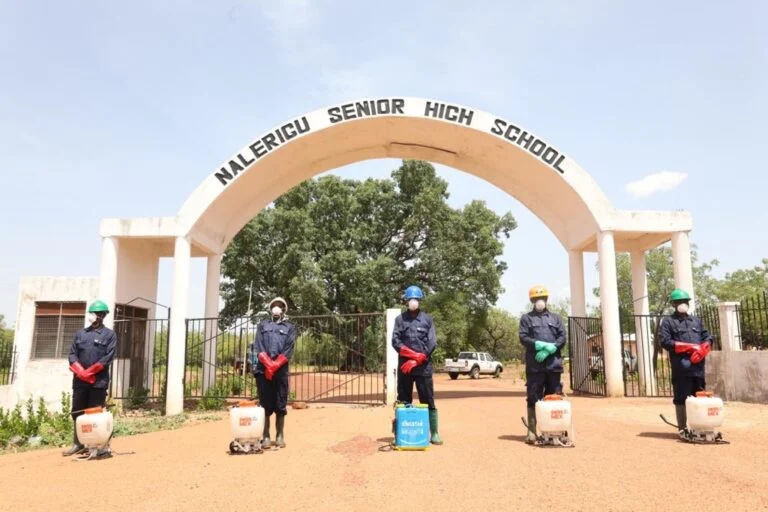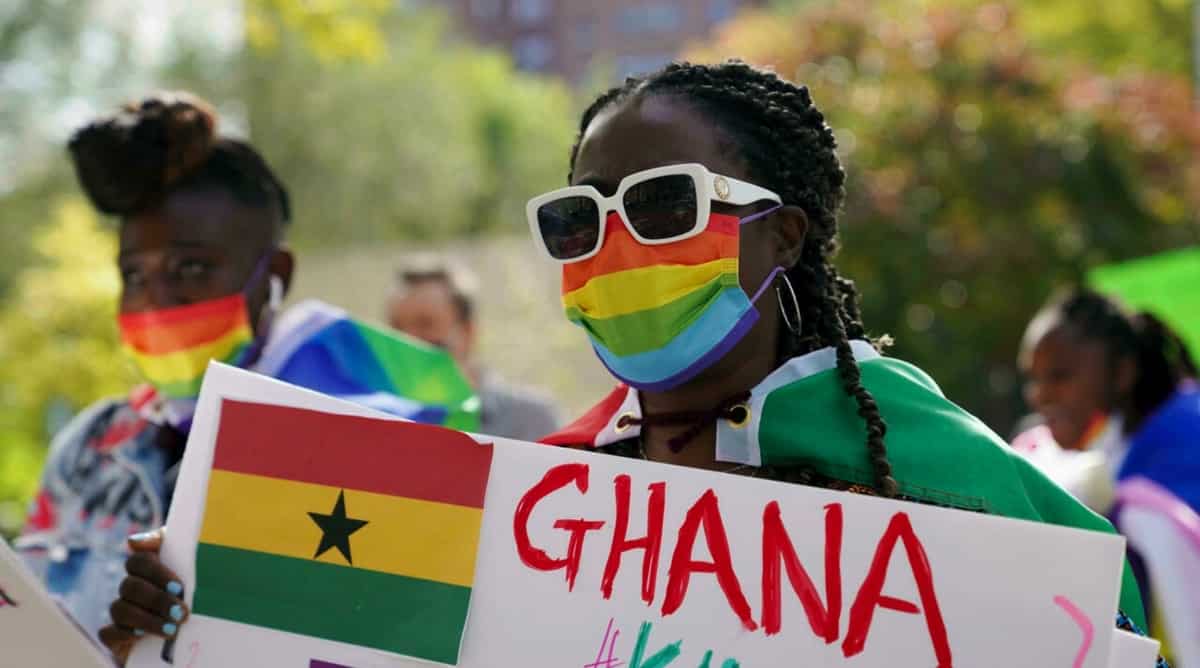The government has initiated the evacuation of students from educational institutions in Nalerigu and its surrounding communities in the North East Region following a tragic incident that claimed the lives of two students.
On the evening of Saturday, July 26, unidentified gunmen stormed the Nalerigu Senior High School premises and fatally shot two male students—Lukman and Gideon—inside their dormitory. The attack, widely linked to the ongoing Bawku conflict, has shocked local communities and left residents in mourning.
Dasmani Fuseini, Assembly Member for Denugu Electoral Area and uncle to one of the deceased, confirmed the attack to the media. Police are currently holding the bodies, with efforts underway by the families to retrieve them for burial.
As investigations begin, authorities have pointed to possible ties between the killings and the protracted chieftaincy conflict in the Bawku enclave. The school management has yet to release an official statement, but the student body has been deeply affected, with nearby communities grappling with fear and grief.
In response, the Minister for the Interior, Muntaka Mubarak, acting on the advice of the North East Regional Security Council, has imposed a curfew from 2pm to 6am on Nalerigu and nearby areas, effective Sunday, July 27. The directive, issued via Executive Instrument, is expected to remain in place until further notice.
The curfew has enabled the safe and organized evacuation of students from schools in high-risk areas. Authorities have also declared a total ban on the possession of arms or any offensive weapons in the curfew zone. Violators will be arrested and prosecuted.
The government has called on local leaders, youth, and residents to pursue peace:
“We urge the chiefs, elders, opinion leaders, youth, and people of the area to exercise restraint… and to use non-violent means to channel their energies into ensuring peace.”

In a related development, curfew hours for the Bawku Municipality in the Upper East Region have also been reviewed to the same timeframe of 2pm to 6am, starting July 27. The move comes amid increasing violence that threatens ongoing peace efforts.
A government statement issued July 27 confirmed a policy shift from peacekeeping to peace enforcement in Bawku and surrounding areas to curb the spiraling insecurity.
To bolster this new strategy, the Ghana Armed Forces (GAF) have been deployed to maintain order and protect lives and property. The government has urged residents to cooperate fully with security personnel.
Speaking on the matter, Defence Minister Dr. Edward Omane Boamah assured the public of the GAF’s readiness to tackle threats:
“We acknowledge that the situation in Bawku and Alavanyo and their immediate surroundings remains volatile… The Ghana Armed Forces is actively monitoring and has put in place robust mechanisms to ensure any potential escalation is swiftly contained in the interest of the people and long-lasting resolution of the conflict through dialogue.”
He added that criminal acts committed under the guise of traditional disputes will not go unpunished:
“In doing so, we shall always separate crimes from traditional matters, enabling us to deal appropriately and legally with criminals who foment trouble in the name of chieftaincy conflict.”
Tensions in Bawku were exacerbated a few weeks ago after a violent clash between civilians and security forces resulted in the deaths of five people and the destruction of a statue of Zugraan Naba Asigri Abugrago Azoka II, the paramount chief of the Kusaug Traditional Area.
President John Dramani Mahama has ordered the reconstruction of the destroyed statue, originally erected in 2024 as a cultural monument to the revered overlord. The process is set to begin in the coming days under the supervision of the Defence Minister and other security agencies.
Dr. Boamah affirmed the government’s commitment:
“To assure that His Excellency President John Dramani Mahama, the Commander in Chief of the Ghana Armed Forces (GAF), remains committed to bringing an end to decades-old conflict.
To address the recent happenings the National Security Coordinator, myself, the Minister for the Interior, the Chief of the Defence Staff and the IGP have all been tasked to play coordinated but differentiated roles to ensure that peace and calm is restored immediately and this includes restoration of the statue of the Zugran of the Kusasis traditional area.”
On July 15, several MPs from the Upper East Region demanded justice for the victims and accountability for the military personnel involved in the civilian deaths. The most recent unrest follows the return of Mamprusi chief Alhaji Seidu Abagre, whose enskinment in 2022 was overturned but who re-entered Bawku after a Kumasi High Court dropped his arrest warrant in October 2024.
This move reignited ethnic tensions between the Kusasi and Mamprusi factions, prompting government action including renewed curfews and a firm security presence. In May, the curfew in Bawku was extended via Executive Instrument.
Efforts to mediate the long-standing conflict continue, with Otumfuo Osei Tutu II stepping in to lead negotiations. The Asantehene’s planned mediation session, initially slated for April 28 to May 1 at the Manhyia Palace, was postponed due to the complexities of the conflict.
Despite recent setbacks, the government has expressed gratitude to Otumfuo for his leadership:
“The government has commended His Majesty Otumfuo Osei Tutu II for mediating the conflict and appreciates all stakeholders who are supporting the peace process.”
Officials continue to encourage non-violence:
“The Otumfuo mediation, with the genuine help of Nayiri and Zugraana, had almost brought finality to the conflict until the very recent killings, which have necessitated drastic actions to protect all in the interests of the greater good.”








